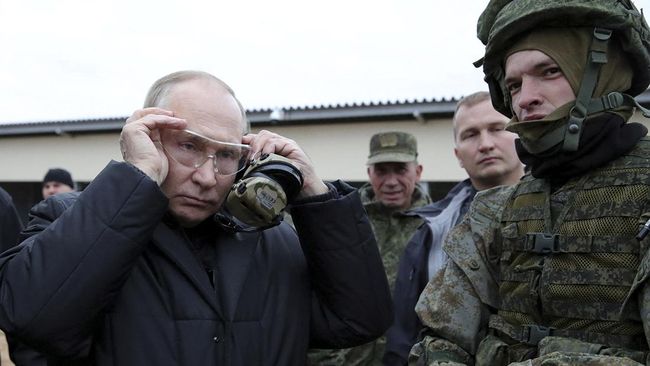Russia he reportedly had plans to invade Japan in the summer of 2021 a few months before launching the attack on Ukraine.
This was revealed by an email sent by a whistleblower containing the contents of a letter from the Russian intelligence agency, the Russian Federal Security Service (FSB), which
The email was sent by an FSB agent dubbed the Wind of Change to a Russian human rights activist, Vladimir Osechkin, on March 17. Osechkin runs the anti-corruption website Gulagu.net and currently lives in self-imposed exile in France.
The FSB agent regularly wrote internal emails to Osechkin. Some of them have expressed anger and dissatisfaction within the FSB over the Russian invasion of Ukraine on February 24.
In one of the FSB emails dated March 17, it was revealed that Russia is “very seriously preparing for a military conflict with Japan” in August 2021.
However, the FSB agent explained that Russia instead chose to invade Ukraine a few months later.
“The belief that the countries will be involved in an acute confrontation and the risk of war is also high. Why Ukraine was ultimately chosen as a war target (the scenario has not changed much) is the other side that has to answer “, stated the email read as it was obtained Newsweek.
In his letter, whistler it also details the maneuvers of Russian helicopter gunships targeting Japan. Meanwhile, the Russian propaganda system also started spreading the narrative that Japan was a fascist country and part of the “Nazis”.
Until now, Russia and Japan have never officially ended their conflict during WWII with a peace treaty. Because of this, many observers believe the two countries are technically still at war.
Much of Moscow’s dispute with Tokyo centers on islands claimed by Japan but currently occupied by Russia.
The Kuril Islands of Kunashiri, Etorofu, Shikotan and Habomai were captured by the Soviet Union at the end of World War II. Japan claims the islands as part of the “Northern Territory” and the dispute over these islands continues to strain relations between the two countries.
According to the FSB agent who leaked the email, he also acknowledged that the Kuril Islands were the “main stumbling block” of Moscow-Tokyo relations.
The islands disputed by the two countries lie between Hokkaido, Japan, and the Kamchatka Peninsula, Russia. Thus, the islands disputed by Tokyo and Moscow have strategic as well as military and political advantages for their rulers.
“For Japan, there is a modern geopolitical basis here: its WWII underdog status still prevents it from having a formal military force, foreign intelligence services, and a host of other things. , the return of the Kuril Islands within reach of Tokyo would mean an overhaul [atau bahkan pembatalan] its status so far after the Second World War,” wrote the FSB email.
Meanwhile, whistler describes the Kuril Islands for Russia as a bargaining chip or “trading commodity”.
(rds)


